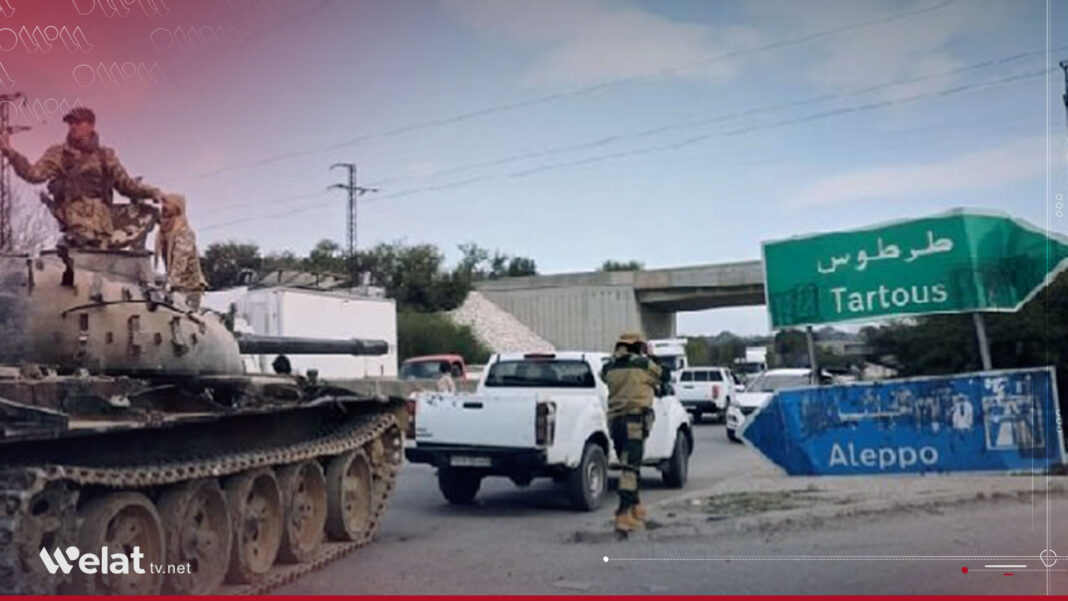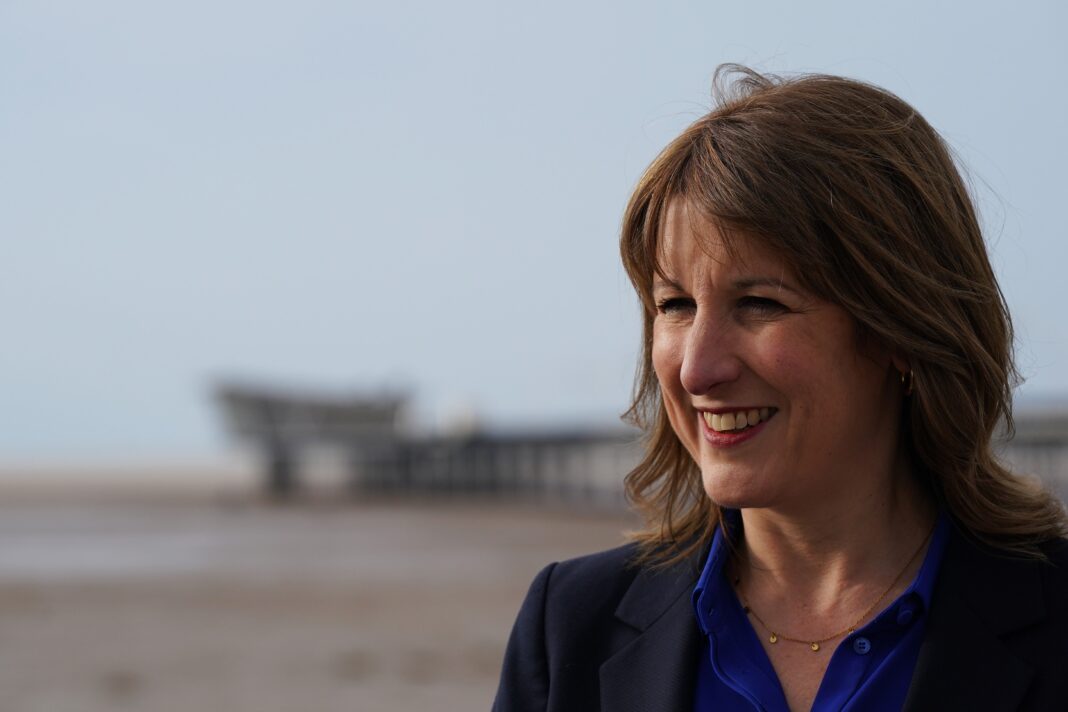Orla GuerinSenior International Correspondent, in Syria
BBC/Goktay Koraltan
Human remains have been unearthed at this site in Eastern Ghouta, outside Damascus
A burly bearded man in a blue tunic moved swiftly through grassy stubble on a windswept road in rural Damascus, collecting bones with his bare hands.
He added a jaw to the pile, before gently picking up a skull. Briefly, he kissed it – a moment of tenderness for one of the many victims of Bashar al-Assad. Ten months after Assad was ousted from power last December, in a lightning rebel advance, mass graves are still being uncovered.
The Syrian dictator’s legacy is embedded in the soil here – skeletal remains where crops should be. There are now more than 60 grave sites and counting.
One of the latest came to light in al-Otaiba village, in the district of Eastern Ghouta, where a shepherd stumbled on clothing and human remains after straw was burnt off.
The authorities believe as many as 175 bodies were bulldozed into a mass grave in this former opposition stronghold.
They are among the legions of the missing.
More than 181,000 people were forcibly disappeared or arbitrarily detained during the 14 years of Syria’s civil war, according to the Syrian Network for Human Rights monitoring group. It says 90% were taken by the Assad regime.
BBC/Goktay Koraltan
Little remains of the estimated 175 people buried in the mass grave in al-Otaiba village
The families of the missing are now demanding answers and justice, from the new Syria – which held its first parliamentary election, of a sort, earlier this month.
A “people’s assembly” was chosen but not directly by the people. One-third of the seats remain to be filled. The appointees will be hand-picked by Syria’s Interim leader Ahmed al-Sharaa.
Depending on your viewpoint in this broken country, and perhaps on your religion or your sect, the election was either a sham or a first step on the road to democracy.
As Syria faces forward, President Sharaa – a jihadi fighter turned head of state – says the missing will remain “a national priority”.
BBC/Goktay Koraltan
Kasim Hamami found a garment which belonged to his missing brother
Bereaved relatives like Kasim Hamami are counting on that. They can do little else.
We found him digging by the roadside at the mass grave site, pulling secrets from the soil.
As we watched, he uncovered a frayed, brownish jumper covered in dirt. It was a last trace of Samer, his brother, who disappeared aged 21.
“Samer was a civilian,” Kasim said softly, “and newly-wed, just 15 days into his marriage. He had nothing to do with armed groups. He didn’t fight anybody,” he said.
“Ghouta was under a blockade. The regime did not allow in any food. He left because of hunger.”
Kasim’s three nephews also left with Samer and shared his fate.
They were among around 400 people who set out from Eastern Ghouta on 27 February 2014, hoping to reach another rebel stronghold. On the way, they were attacked by the regime and its allies in Hezbollah, the Lebanese Shia militia backed by Iran.
We know this because they filmed the slaughter and published the footage. The video – widely circulated online – is hard to watch.
BBC/Goktay Koraltan
Those buried in al-Otaiba are believed to have been killed by Assad regime forces and their Hezbollah allies
It shows a column of people walking along a road, straight into an ambush.
Landmines are detonated along a 300m (985ft) stretch. The explosions are followed by a hail of bullets.
The convoy was mostly men, but included women and children, according to Mohammed Omar Hajjar, the newly appointed public prosecutor for rural Damascus. He believes they were civilians. The regime claimed at the time that the dead were fighters.
We met one of the survivors, who gave us a first-hand account of the attack.
Bilal, a nurse, was back at the mass grave site, glancing around at the sunlit landscape, reliving his darkest night.
BBC/Goktay Koraltan
Bilal survived the attack on the convoy in 2014
“We left at around midnight,” he told us. “I walked behind my colleague, 30m apart. After the mines went off, the wounded were screaming. They killed them in cold blood. I could hear two voices, and I could not help.”
Bilal says he survived by hiding in a bush until the following day and is speaking out now for those who can’t.
“I lost my nephew, friends and relatives. Those who set up the ambush should be held to account,” he said.
Will that happen?
Many senior figures from the former regime are on the run, and Hezbollah has been devastated by Israeli attacks, and Israel’s war on Lebanon in 2024.
A Syrian judge has issued an arrest warrant, in absentia, for Bashar al-Assad, in relation to other killings. But the former president has found refuge in Russia – which backed him during the civil war.
It’s not known if his fate was discussed when President Sharaa held talks with President Putin in Moscow on Wednesday – the former enemies shaking hands in the Kremlin and discussing how to strengthen relations. If Assad was watching, it won’t have been easy viewing.
Back home, there is one major change for families he destroyed. They can now share their anguish without risking their lives.
BBC/Goktay Koraltan
Syrians with missing loved ones are gathering in “truth tents” to share their experiences
About an hour’s drive from the mass grave, we joined a gathering of wives, mothers and daughters of the missing.
They met at a “Truth Tent” – a community-led forum where Syrians lay bare the horrors of the past. In this case the “tent” was a village hall.
More than a hundred women crowded in – so many there weren’t enough chairs – many wearing black abayas and headscarves.
They gathered around us, holding out photos of husbands, fathers or sons – men who may live now only in their memory. More photos were hung in rows on the wall.
One woman paused before the display and raised her hand to caress an image.
A softly spoken 18-year-old called Bisan recalled how her father was taken away at gunpoint, when she was just four years old.
“They got my dad, handcuffed him and put him in the van,” she said. “He asked them why he was being arrested. One of them pointed a gun against his head. We were so scared. We could not do anything back then. I was young and my mum kept crying.”
Her cousin stood alongside as she spoke. Her father was also taken.
Around the room, voices rose and fell in a chorus of harrowing accounts of loved ones snatched from work or home and swallowed by the regime’s notorious prison system.
“Prisons were filled with the blood, and lives of the innocent,” shouted one woman from the back of the hall. “We spent a lot… sometimes even selling our houses, to pay some dog from the regime for information about our brothers, sons or husbands.”
Another woman described being asked to choose between freedom for her son or her husband.
“They took me and my son to the security branch,” she said. “They beat us both. They showed me my son on the camera and asked me if I wanted my husband or my son. I said I wanted my son.”
The authorities asked her to sign a paper saying her husband was a terrorist, but she refused. “I never saw him carrying a weapon,” she said. “He went out demonstrating because he was hungry.”
BBC/Goktay Koraltan
Bisan last saw her father when she was four
Another veiled woman shouted her demand: execute Bashar al-Assad.
“We will get our rights when he is hanged,” she said. “He’s to blame for everything. When we cut the head off the snake, we will heal and make peace with each other.”
Najwa, one of the organisers, took to the stage to urge the families to be patient.
Her husband Mohammed al-Hallaq was taken in January 2014. She was given his death certificate later that year but has never found his body.
“The son of a pig, Bashar, broke us for 14 years,” said Najwa, her voice laden with anger. “The only thing I ask of you: don’t give up, don’t stop pushing. It’s not going to happen overnight.”
Some wonder if it will happen at all, including a bereaved father called Mohammed, one of the few men at the meeting. His son, Mazen, who worked at the electricity company, was taken by state security in 2013.
“All this talk is not useful, if we don’t get action,” he said tearfully. “What we need is for the people who took our sons to be on trial.”
There is a now a National Commission for Missing Persons, but it is in its infancy and struggling with a lack of resources – including DNA testing facilities. Syria has only one DNA laboratory.
Ten months after the ousting of Assad, the ranks of the missing are still growing.
Some families are only now coming forward with accounts of loved ones who are long gone.
“We try to manage expectations,” says Zeina Shahla, spokesperson for the commission. “We tell the families we have begun but unfortunately it will take years. In every Syrian village, there might be missing persons.”
At best their loved ones can expect more years of waiting for truth, or justice, or bones to bury.
Additional reporting by Wietske Burema, Goktay Koraltan, Lana Antaki and Aref Alkrez.





